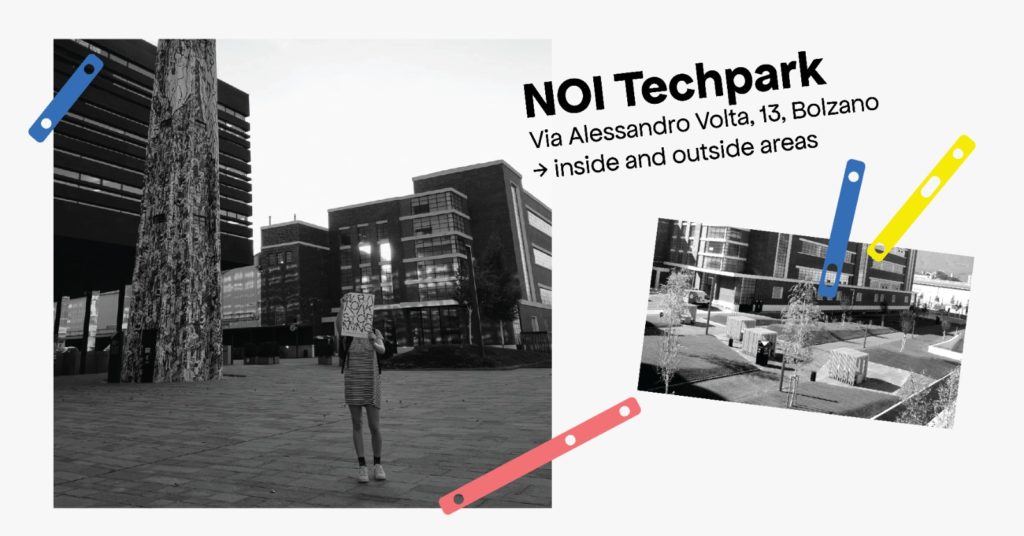CONFERENCE
Registration open until 16 September 2021 extended to Monday, 20 Sept, 12:00 noon
→ Students & persons without a decent income: Free → Please register here
→ Folks with a decent income: 90 € → Please register here (Payment is possible only via credit card)
Open access with COVID-19 Green Pass.
WORKSHOPS
For the workshops, you don’t have to register separately beforehand. On each day Thursday and Friday you can choose in the morning where you want to participate and join the group. Please consider that only the people in presence can participate in the workshop session – we can not offer a hybrid version but for sure our documentation team will provide for you some nice insides!
Information About Our Physical<—>Digital Hybrid Conference
DoD is a social and engaging conference, which means it can be a little “all over the place” in the best of ways! In accordance with the coronavirus pandemic social distancing regulations, we have divided our conference into a few different physical and online spaces for you to have the best experience possible.
Our location at the Noi Techpark can seat 40 people. For this reason, we are asking all participants who plan to attend DoD physically to share their preference of location. The available locations are: inside Noi Techpark OR at one of our chosen outdoor spaces around the Techpark. With this information, we will try our best to accommodate every participant’s preference and communicate your location of attendance closer to September 23rd. Participants attending DoD physically will be able to partake in any/all portions of the conference program. Those attending online-only will be able to partake in all portions of the conference program other than meals and workshops.
If you have any questions about our hybrid set-up, please contact us at any time.
This series of conferences co-develops with the Master in Eco-Social Design at the Faculty of Design and Art of the Free University of Bozen-Bolzano. The 2021 edition will take place 23-24 September, in Bolzano-Bozen and connected to hier und da festival 25-26 September in Obervinschgau, a beautiful upper valley and a hotspot of eco-social innovation. With Katharine McKinnon ( → Community Economies, Centre for Sustainable Communities, University of Canberra, Australia), Ella Lagé (→ The Dive, Germany), Kate Rich (trade artist and feral economist → Feral Business Coaching / feral trade / Cube-Cola, Australia/UK), Maurizio Teli (Design Research with a focus in Participatory Design & Commoning), Ruben Pater (→ The Politics of Design, CAPS LOCK, Netherlands) and a lot of more persons with inspiring keynotes, short inputs, collaborative workshops, walks and talks, food and sun, in a convivial atmosphere. This year’s focus is:
A great social-ecological transformation towards sustainable, resilient, and solidary modes of living and production is urgently necessary. Both society and politics appear to be accepting of this orientation. While there is an undeniable societal and ecological need for such work, these developments are not mirrored by parallel realities in the labor market. This is not only a problem for the individuals seeking to be engaged in transformative work but also an obstacle for much-needed transformations on a societal level. The difficulty to secure one’s livelihood effectively renders transformative work unattractive or actually unviable to a large number of individuals.
This brings up the challenge to transform “work” in a more general sense, as most individuals still (have to) spend the majority of their time working – commonly in kinds of labor which mainly consist of work that is either not particularly transformative in the aforementioned sense or even stands in stark contrast to it. At the same time, many do find ways to productively engage in as volunteers and social movements for positive transformations. If this engagement remains limited to their spare time, and their time spent in conventional work remains unchanged, the transformative agency of volunteering and of social movements might not bring about the required transformation. On one hand, volunteering and social movements need an economic basis in order to strive in the long run. On the other hand, work and value-creation themselves need to be re-defined, -designed, and -done in order to become transformative.
The currently dominant system seems to invest rather in the continuation of business-as-usual – eventually making it (look) ‘greener’ and (sound) more ‘inclusive, and not as much into its transformation to truly sustainable, resilient, and solidary futures.
How then to deal with all this practically?
→ Is it possible to establish a demand on the labor market for truly transformative work? How?
→ How to define and communicate the values which transformative work creates, and how to make sure that these values are recognized?
→ Do we need a completely different understanding of work in the first place? Which?
→ Which support structures and programs are needed to help transformation-engaged practices to strive, and provide livelihoods to practitioners at the same time?
→ How to develop the potentials at the intersections of social work, transformation-engaged design, and social innovation?
… and many more questions → see below and add yours via email.
We look at all this from the perspective of transformation-engaged designers and related teachers/researchers at a University in the Alps. We invite persons from other fields of work/research and areas of the world to understand better what really can and should be done.
This series of conferences is an occasion for a lively exchange on creative practices triggering eco-social transformations. Both guest speakers and audiences come from diverse backgrounds and locations, ranging from innovative local agricultural entrepreneurs to internationally known designers and researchers. The conference offers a mix of frontal talks, dialogical formats, hands-on workshops, and excursions in a convivial atmosphere. This year the conference will be in a hybrid model – in Bolzano and online.
Our conference home base will be in the NOI TECHPARK / BOLZANO where we hang out in the inside and outside area to enjoy two nice days together. Some other GATHERING SPOTS around our festival area will also be part of the conference, like workshops at LaRotonda or the Anna Frank Platz as a meeting point.
BUT the food & snack area will be at NOI – so if you want to join us to be part of the best social lunch / dinner / coffee breaks meet us there – we are waiting for you! (:

In 2021 the conference will be again connected to the festival “hier und da – gut leben im ländlichen Raum / il buon vivere nelle zone periferiche” in Obervinschgau / Alta Val Venosta. Find more information about the program and the registration on there website.
→ How to create transformation-engaged jobs in the public sector?
→ How to unfold the potential of Public-Commons Partnership and other currently unconventional corporations that foster positive transformations and generate related work?
→ Which roles can cooperatives and umbrella organizations of cooperatives play?
→ How can unions become a positive agent in the transformation of work and the creation of transformative work?
→ Which work opportunities and leverage points for transformation do large established structures such as big corporations and institutions offer?
→ How can existing jobs be turned into transformative work?
→ How can care and commoning secure livelihoods, and lead to living and re/producing beyond market and state? Which modes of working and living transformation can be activated that are providing for livelihoods independent of the labor market and of capitalist logic?
→ Which workarounds and mixed-modes of work and livelihoods are viable within the given conditions and still transforming them in a positive way?
→ In which form can and should transformation-engaged practitioners get organized?
…
Registration is open until 16 September 2021 extended to Monday, 20 Sept, 12:00 noon
Open access with COVID-19 Green Pass
→ Students & persons without a decent income: Free → Please register here.
→ Folks with a decent income: 90 € → Please register here (Payment is possible only via credit card)
Full Program here. To stay up-to-date subscribe to our Newsletter, follow/like/share on Facebook & Instagram
Questions and suggestions are welcome via email.








